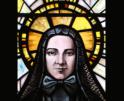
Culture
The Boston Philharmonic conducted by Benjamin Zander will be giving a rare performance of "The Dream of Gerontius" in Symphony Hall on Friday, April 20 at 8 PM. There will be a pre-concert discussion of the music by the conductor in the hall at 6:45. The soloists -- from England and Australia -- are Robert Murry as Gerontius, Madeliene Shaw as the Angel, and Derek Welton as The Priest and as The Angel of the Agony. -- Editor
In the year 1900 Edward Elgar composed one of the greatest, and also one of the most courageous pieces of music ever envisioned by an English composer. The title is "The Dream of Gerontius", an evening-length dramatic work. It is scored for three soloists, orchestra, large chorus and organ. It is often called an oratorio, but that doesn't really describe the intensely dramatic, psychologically and spiritually probing nature of the work. Its subject is the journey of an aged man from his dying day, through death, and on into the other side.
What makes this sublimely beautiful work "courageous" is the fact that it was written by the devoutly Catholic Elgar, for whom religion was not just a habit but literally informed every aspect of his thought and his daily life. But, he was writing during a virulently anti-Catholic period in British history. For a young composer, particularly one like Elgar, who had no advantages of wealth or status in England's extremely stratified society, it might almost have seemed like career suicide to unveil, as his largest and most deeply-felt work, a piece that so resolutely proclaims its Catholicism in every bar. And, indeed, the work got off to a rocky start, being hailed a masterpiece in some quarters -- some going as far as to call it the greatest piece of music written in England since the death of Handel -- but in other quarters it, and its composer, met with stony and implacable opposition. Its performance in some of England's most important Anglican churches was banned outright, while in others it could only be performed with extensive modification of its text.
The problem that Elgar's Church of England contemporaries had with the piece was not really with the music, which is of such exalted and sublime beauty that hardly anyone could fail to be moved, but rather with its text, by Cardinal John Henry Newman, the great English theologian, priest and poet, whose life spanned nearly the entire 19th century. His beatification was proclaimed by Pope Benedict XVI in 2010, and he is now awaiting canonization. Newman had himself begun as an Anglican priest, but converted to Catholicism after his protracted campaign to restore to the Church of England some of pre-Reformation doctrines failed. He was throughout his life a passionate advocate for the Church in a country that was largely hostile. And he wielded a weapon that none of his adversaries could match -- the power of the pen. He was a master of the English language, and used it with haunting evocativeness and surgical precision. "The Dream of Gerontius" is his poetic masterpiece, a powerful -- and at times harrowing -- drama of the soul's departure from the body and of the events, both sublime and terrible, that lie beyond that great divide.
Elgar's setting of this text is of a power and rapturous beauty -- and at times a strangeness -- that really has no precedent in English music. One feels Gerontius's agonies as one's own, as alternating waves of peace, of fear, of doubt wash over him in his final hour. His final moment on earth is one of complete acceptance and a seamless fading from this life into the next. The second half of the work takes place in heaven. The soul of Gerontius now meets his guardian angel, who prepares him for the Final Judgment. The feeling of now being pure spirit, without a body, is utterly new to Gerontius -- strange, yet infusing him with new life, a kind of life he has never known before. All things about heaven, its sights, its aromas, its strange sense of being everywhere and nowhere, are marvels for Gerontius, and Elgar's musical depiction of these things that really can't be grasped by words alone is of astonishing subtlety and -- in an odd paradox that fits the subject perfectly -- a uniquely chaste kind of voluptuousness. Perhaps most amazing of all is the climax of the work, the moment that Gerontius steps into the presence of God to be judged. It all takes just a nanosecond, the briefest glimpse of God, but for that devastating moment of radiance Elgar found a shattering musical depiction that, once heard, is never forgotten.
Performances of this extraordinary masterpiece are rare and not to be missed.
Tickets are available by phone at 617 236-0999 or online at bostonphil.org.
Recent articles in the Culture & Events section
-
Scripture Reflection for April 14, 2024, Third Sunday of EasterDeacon Greg Kandra
-
St. Helena's House is established in the South EndThomas Lester
-
Is this synodality?Russell Shaw
-
Poking the hornet's nest of IVFFather Tadeusz Pacholczyk
-
A eucharistic word: MissionMichael R. Heinlein


















